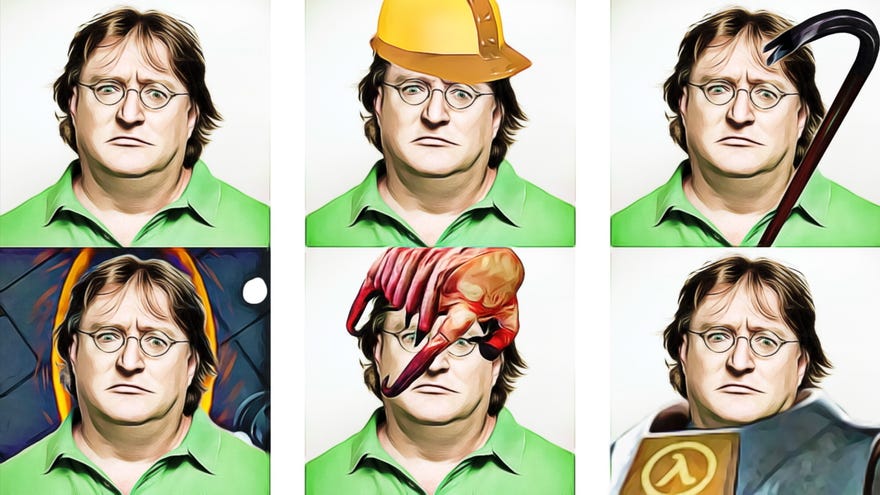Gabe Newell: NFT actors “not people you want to be doing business with”
Valve head speaks on “criminal activity” around NFTs and why Steam stopped accepting cryptocurrency
From Ubisoft to Konami to the Epic Games Store, games companies are doubling down on NFTs as fast as others are backtracking on them. Valve, on the other hand, aren’t likely to get involved any time soon, owing to “a lot of criminal activity and a lot of sketchy behaviours”. That’s according to co-founder Gabe Newell, who recently spoke to us about his concerns around crypto.
While indie game store Itch.io declared NFTs a scam, Newell is more open to the “underlying technology of distributed ledgers” – but says there are just too many bad actors using that technology for nefarious endeavours, namely fraud and money laundering. Steam banned games with NFTs and cryptocurrency last year.
“You have to separate the underlying technology versus which actors are utilising that technology,” Newell explained. “It's like, if you're a chemist, and you're looking at nitrocellulose, you're like, ‘Oh, yeah, we can do some really interesting stuff with that.’ And then if everybody's buying guns and shooting people with them, you're sort of like, ‘Hey, this whole chemistry thing is great, but there are some outcomes that can be negative.’ Not to equate NFTs with shooting people, but the underlying technology of distributed ledgers, and the notion of digital ownership, and shared universes, are all pretty reasonable.”
“The people in the space, though, tend to be involved in a lot of criminal activity and a lot of sketchy behaviours. So it's much more about the actors than it is about the underlying technology, or the rationale for what we're doing.”
Newell also elaborated on why Steam stopped accepting cryptocurrencies as a payment method, noting the drastic price changes that came with the digital money’s rapidly shifting values as well as – yup – more fraud.
“It just made customers super mad. There was the issue of volatility: you don't want your pricing to vary when anchored to people's wages. So if you think of ‘how much I make,’ right? It happens to be denominated in things like euros or dollars or whatever. They don't want to find out that there's tremendous volatility when they're actually purchasing things day to day. Like, why did I spend $497 one day to buy a game, and the next day I spent 47 cents, what's going on here? Volatility is a bad thing in a medium of exchange. That was one problem, that sort of volatility was creating more pain for our customers than the value of having the option of using cryptocurrencies.

“Another thing was that the vast majority of those transactions, for whatever reason, were fraudulent, where people were repudiating transactions or using illegal sources of funds and things like that. And that's just out of control, right? You want that number, realistically, in a couple of percent, not half of all transactions turning out to be fraudulent transactions.
“Similarly, with the actors that are currently in this NFT space, they're just not people you really are wanting to be doing business with. That doesn't say anything about the underlying technology, it's just a reflection of the people right now who are viewing it as an opportunity to rip customers off, or engage in money laundering, or other things like that.”
In our full interview, Newell also spoke on plans for the newly-released Steam Deck, why consolidation of games companies must create “value” for everyone, and lessons learned from Valve’s previous hardware adventures. For more on the portable PC itself, you can also check out our Steam Deck review.










